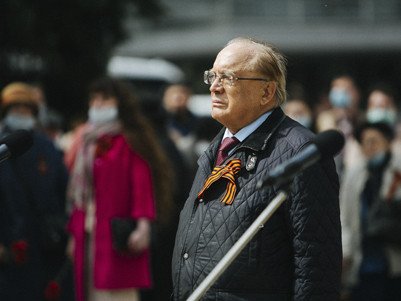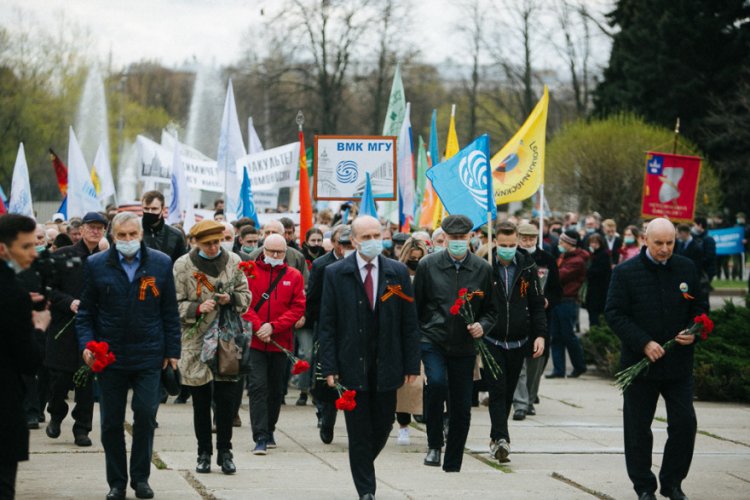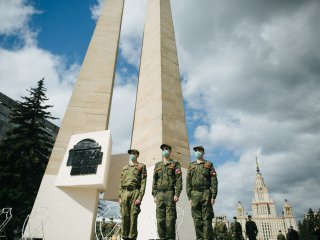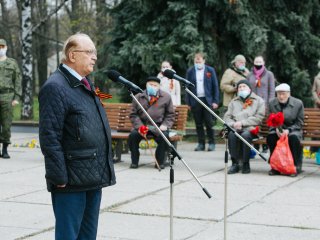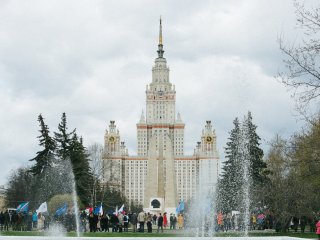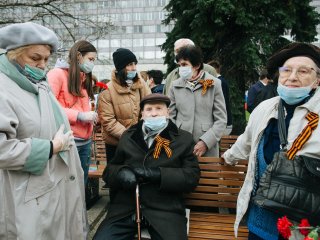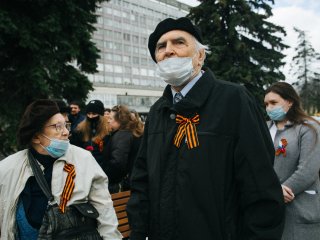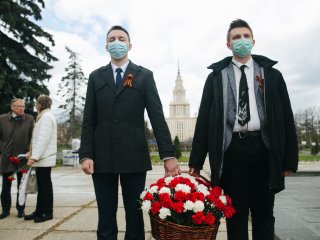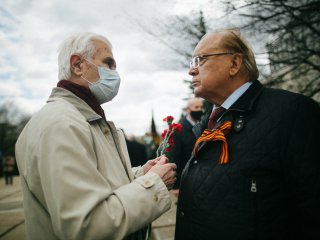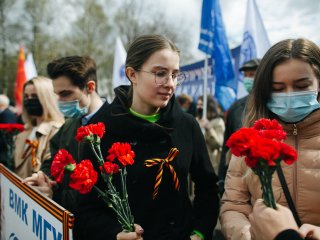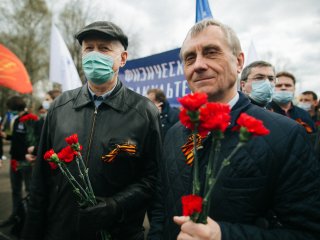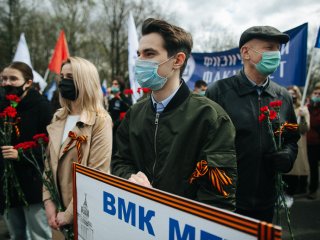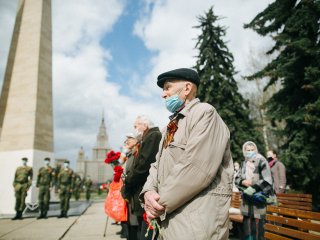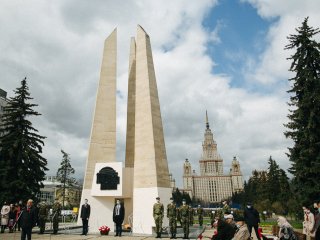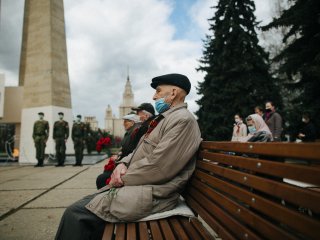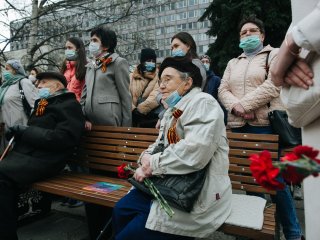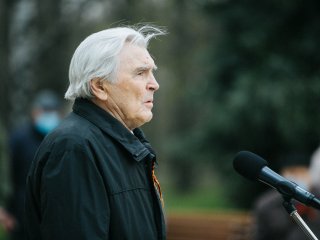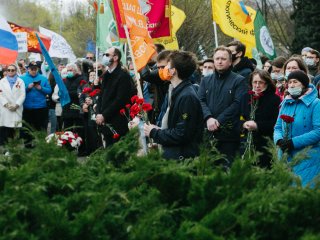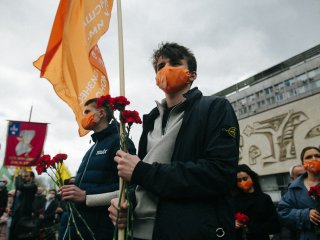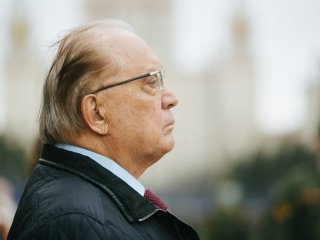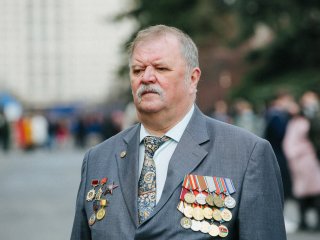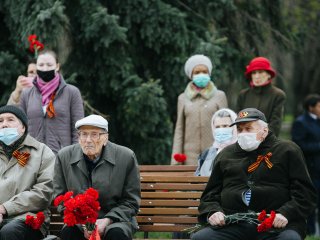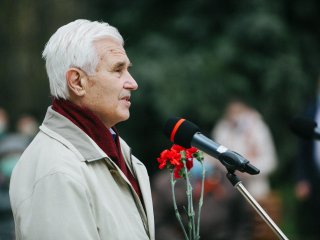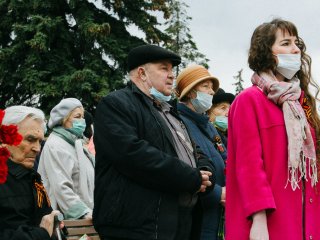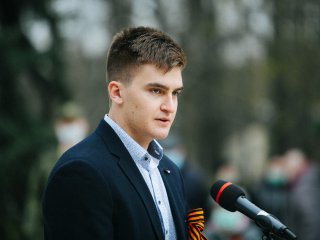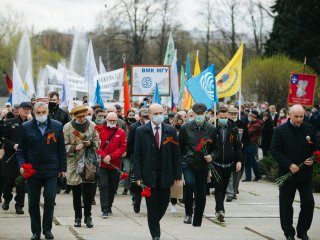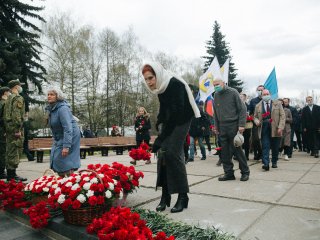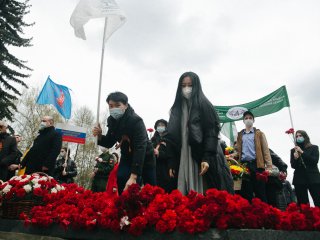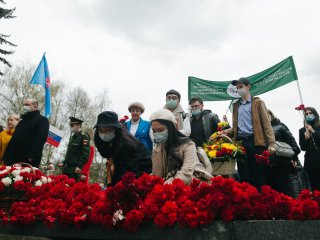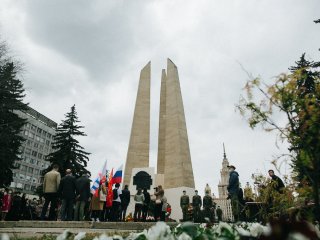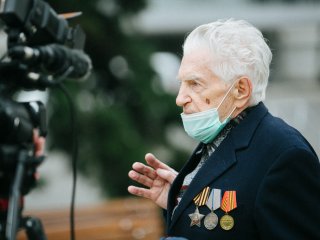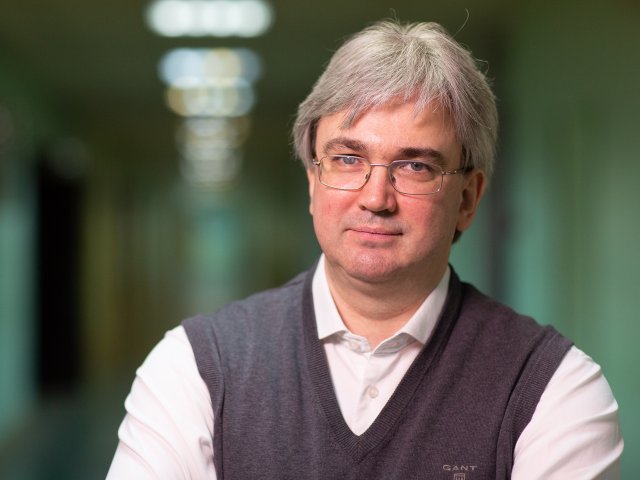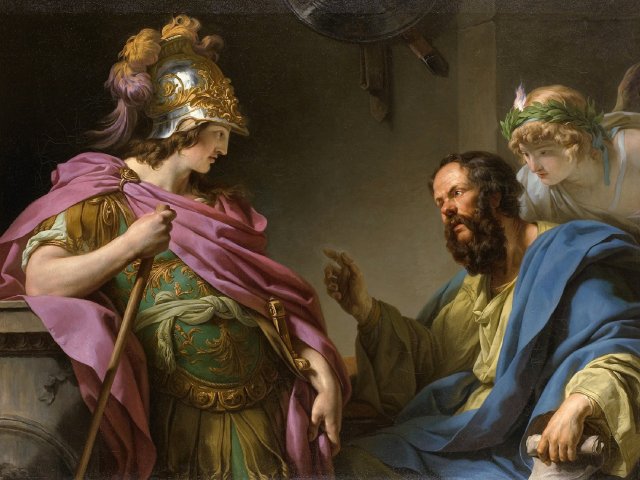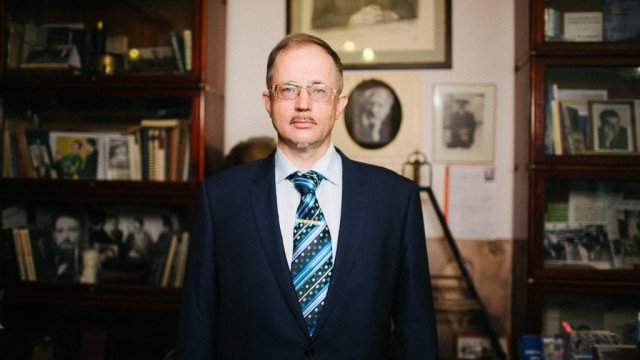On April 29, 2021, to commemorate the 76th anniversary of the Victory, students, graduate students, and employees of Moscow State University laid wreaths and flowers at the Eternal Flame in memory of those who died in World War II. The Eternal Flame memorial complex is located on the territory of Moscow State University, in front of the first academic building. It was inaugurated on May 6, 1975, as a symbol of the contribution of the people of Moscow University to the common Victory.
“Dear colleagues, we have gathered at the Eternal Flame, it will always burn, this is our memory of the terrible years of the war, what our great people experienced, and how they won. We paid a huge price. It’s hard to pronounce, three thousand students, postgraduates, and teachers of Moscow University have not returned from the fight. We remember them by their names and should always remember them, they defended us. Our scientists have done a lot for defense, the older generation even knows and remembers them: our teachers A. N. Kolmogorov, Kh. A. Rakhmatulin, S. V. Ilyushin, G. Y. Sedov, M. V. Keldysh… They did everything for defense and did it well: we won. And these days we celebrate 76 years of our victory.
Today is our solemn meeting. I am very grateful to everyone. Dear veterans, thank you, we understand that you have yet again demonstrated patience and courage. We know that you are such people. You will always do your duty. We are learning from you. Dear people of Moscow University, dear students, I want to ask of you: learn from our history, learn from your elders to love your country, because this is our country, these are our birches, this is our native Moscow University. Happy 76th anniversary of our great victory!” said Viktor Antonovich Sadovnichy, Rector of Moscow State University, in his welcoming speech.
The solemn ceremony of laying flowers at the memorial of Moscow State University Eternal Flame
Photo: Andrey Luft / Scientific Russia
Viktor Yakovlevich Shkadov, professor at Moscow State University, prisoner of concentration camps, delivered a speech: “The more years pass, the more clearly we understand how important this day – Victory Day – is for our people. Especially on these hectic days. This day is the happiest, the most important because it unites us. On this day we have the same experiences, memories, we feel united: the united people who met the fascists in 1941. I think veterans are the root of our people. They must live, we must protect them. It is very scary to hear stories that, unfortunately, began to happen when veterans are being insulted.”
Viktor Titovich Trofimov, professor of the Faculty of Geology, who was born before the war, spoke about the contribution made by the people of Moscow State University to the victory in World War II: “Dear colleagues, you all know about the war, you know about the victory, but few students know who created our modern Moscow State University. And the modern university was created by those who fought, who returned to the university due to injuries during the war, and those who returned to the university after… I want to address the students: at each faculty where you study, you master not only the science, the methodology that they teach you. All this is necessary, but my call is: study the history of your faculty development, evaluate the contribution of veterans that they have made. Once again, they taught all the younger ones who did not participate in the war how to work. When you understand this, you will teach students yourself, maybe not as strictly as we were taught, but for specialists to come out very competent.”
Prokhor Batrakov, a 3rd-year student of the Faculty of Economics of Moscow State University, spoke on behalf of the students: “On May 9, 1945, our people triumphed over barbarism and violence, over fear and pain. The victory was the main reward for the years of the war.” Prokhor Batrakov spoke about the participation of MSU students in events related to honoring the World War II veterans and stressed: “We remember our history and are proud of it. Thank you, veterans.”
Alexander Pavlov, Senior Lecturer at the Department of General Military Training of the Military Training Center
Alexander Viktorovich Pavlov, Senior Lecturer at the Department of General Military Training of the Military Training Center spoke exclusively to Scientific Russia: “I wear orders and medals in my life on two occasions: February 15 is the day of the Soviet troops withdrawal from Afghanistan, and the second is when we, the ‘Afghan’ soldiers, participate in the events dedicated to the most glorious day of the year – Victory Day. It is this day that proves to the whole world that our state, Russia (and in the past, the USSR) is a peace-loving state. We can prove that if someone comes to us with a sword, then he will die from this sword, as Alexander Nevsky said… I want to wish all the remaining veterans good health, and we will be happy to take the baton of patriotic education, their and our combat experience to the new soldiers of the armed forces, who will in their turn help them successfully defend our homeland from the encroachments of any enemy.”
Valery Balinov, participant of World War II
Valery Vasilyevich Balinov spoke to Scientific Russia about the change in attitude toward the participants of World War II: “Many do not understand and do not know. It seems that we have always been participants in the war. But no! We were children. After the war, we still had mountains, hiking, various meetings. There was no talk about the war. Only 20 years after the war, in 1965, for the first time, we had a public holiday on May 9. But there was a salute and that was it, no talking. There was a turning point right after the collapse of the Soviet Union. And it is quite understandable that for 20 years there were no memories of the war. At that time there were the war contemporaries: soldiers, workers, schoolchildren, and children. They lived at that time, and since they were hard times, they didn’t really want to recall it. This is an interesting moment to me, but no one talks about it, does not emphasize it. It seems to the modern generation that we were participants in the war, such as we are now. No! We were young boys and girls with all our joys and interests. And now we’re getting old and it’s not clear why… I’m living those memories. I would like to go to the mountains, but alas, it is difficult. And the desires are the same as they were, but, alas, the age…” And the full version of the comment can be heard in our video, where Valery Vasilyevich tells why longevity can be compared with a time machine.
Report from the scene. Laying flowers at the Eternal Flame memorial of Moscow State University. The ceremonial part
